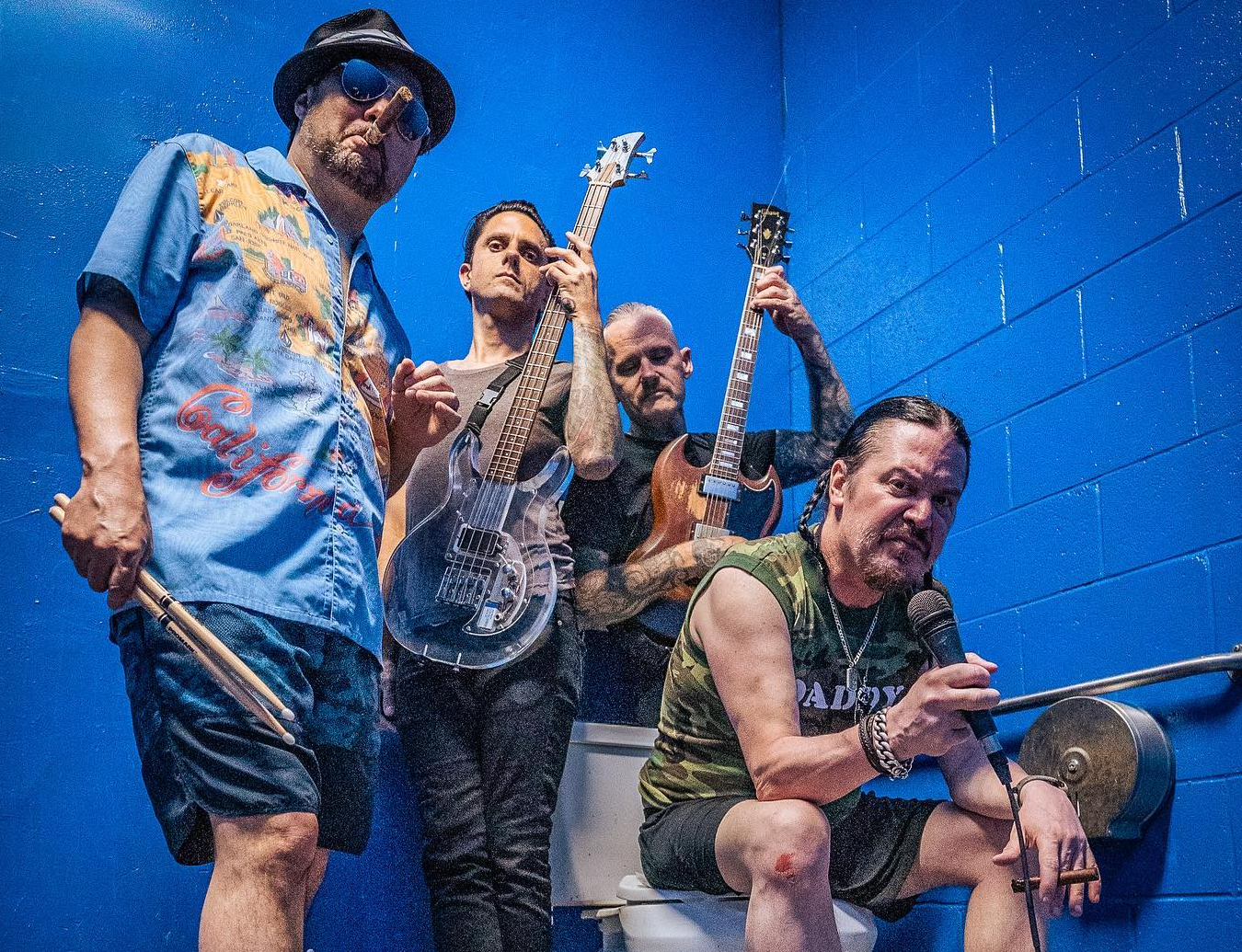
All images courtesy of Speakeasy PR/Becky DiGiglio Photography
The veteran bassist dishes on II, creating an album during the pandemic and the musical brotherhood the members of Dead Cross share.
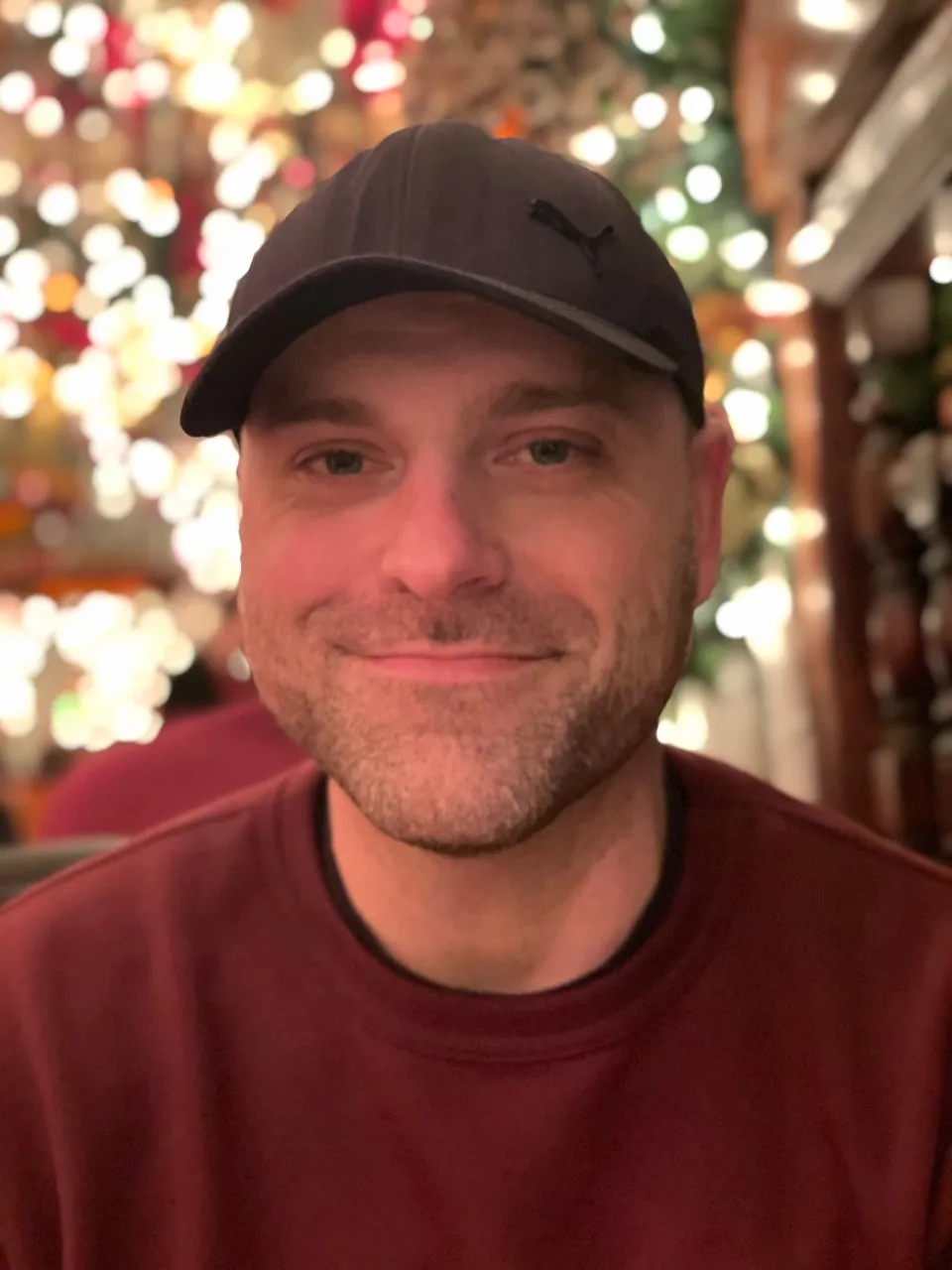
By Andrew Daly
[email protected]
Angular aggressiveness, punk rock ethos, heavy metal brotherhood; these things and more define Dead Cross.
The group’s propensity to ignore what others think and to champion the ideals that made them great in the first place has always been apparent. But never have the collective strengths of Mike Patton, Mike Crain, Dave Lombardo, and Justin Pearson been on such over-amplified display than on Dead Cross’s sophomore bullet to the heart II.
Like a hammer to the back of your skull, II picks up exactly where they left off with 2017’s Dead Cross, only the will to provide the crushing kill shot seems more vital than ever. And it makes sense, given the struggles the reluctant “supergroup” went through during the recording process.
If the pandemic and the fate of their music careers dangling in the balance weren’t enough, then Mike Crain’s and Mike Patton’s brushes with death surely would be enough to silence even the sturdiest outfits. But not Dead Cross.
In the wake of recovery and rebirth, the four members of Dead Cross came together stronger than ever, with the resiliency of a band that faced its mortality dead in the eye and lived to tell the tale. The results prove that Dead Cross’s debut wasn’t a fluke. What’s more, much to their critic’s dismay, by the looks of it, Dead Cross is here to stay.
In a rare moment of silence, Dead Cross’s bassist Justin Pearson checked in with me to run through the recording of II, his approach to the bass, and what this album means to him as Dead Cross moves forward.
Take me through the origins of Dead Cross’s II.
In retrospect, it seems like a lifetime ago since we started working on II. The world we know seems to have been kicked in the balls… or ovaries. I guess leading up to the tracking of the music, we had been jamming periodically up in Los Angeles and compiling ideas for the album. Among the overall shit show that America was – and still seems to be – we reflected on life on this planet. The outcome was the material for the album.
Just leading up to tracking, Mike Crain was diagnosed with cancer, which was an insane feeling for us, especially Crain. I believe he looked at the recording process as a means to fight and beat cancer, so we jumped into the studio with Ross Robinson and did what we had to do. Looking back, I honestly feel that the recording did exactly what Crain had hoped it would do. If that wasn’t enough for us as a band, the planet was presented with the pandemic. So everything seemed to stop, and we all questioned the relevance and practicality of music and art, among many other things.
As time dragged on a bit, and when life on Earth seemed like it had a glimmer of relevance once again, Patton found the means to record the vocals, as did I, per Patton’s request to have dueling “thrash-type vocals.” Once that was knocked out and the album was mixed and mastered, we sat on it as major labels flooded the market with this weird resurgence of vinyl, making vinyl manufacturing times insanely long. It still feels surreal, holding a copy of the album that seemed to have so much going against it.
After the success of Dead Cross’s first record, what was the initial intent behind II?
Success is a strange word for me. Sure, it’s successful. But the definition can mean a million different things to a million different people. I recently read that there are 200K new songs released on Spotify per day. So yeah, there is success with our album as we got attention in the sea of…whatever you want to call it. But I think the success for me was the odd yet extremely organic way the band started and mutated into what it is now. Success was being in the studio again with Ross, playing music, and creating art with Crain, Lombardo, and Patton. For me, success is simple. It’s just the basics. And with the idea of success, I especially enjoy the “critics” with well-put and thought-out comments such as these that I quickly Googled:
“Punk is dead. Died in 1984″ – TheBik (YouTube subscriber)
“Though led by a fiery performance from Mike Patton, this Slayer/Retox/the Locust supergroup doesn’t shed much new light on the players involved.” – Pitchfork
“Lyrically — from what is discernible — it’s all mostly nonsense: in “Shillelagh,” he declares that he ‘took a pee and it came out red/took a dump, and it came out dead/skinhead,’ in “Gag Reflex,” he whispers “Tampax” at random intervals, and throughout anti-church lines combine with provocative sexual imagery.” – Angry Metal Guy
“This sounds horrible.” – Nate the Ninja (Some guy online)
See, I think being unsuccessful is when you end up with indifference. All these opinionated folks have valid opinions in their minds. But you fail when people don’t care either way. The negative is almost as good, and maybe at times, it’s even better than the positive. Nate, Metal Guy, and whoever else all felt compelled to use their time to let the world know just how they feel, and I guess I can thank them for all of that effort.
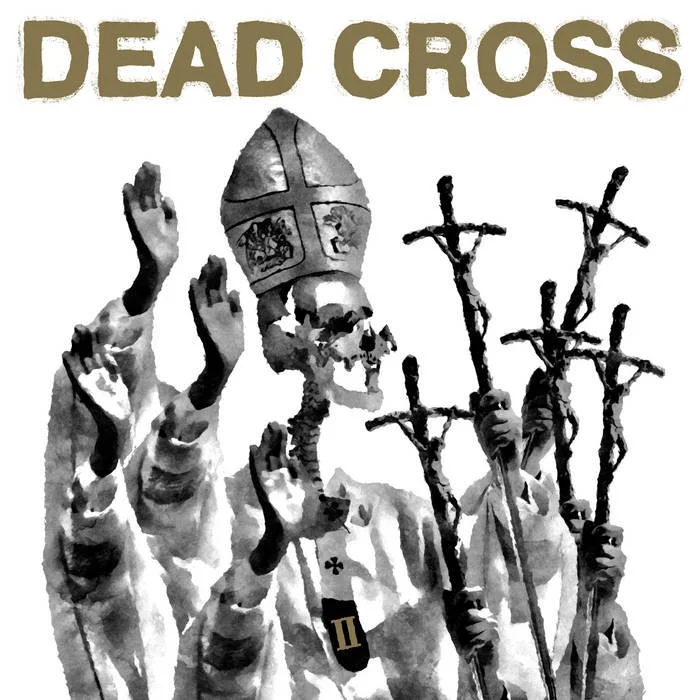
All images courtesy of Speakeasy PR/Becky DiGiglio Photography
Dead Cross faced several challenges during the recording. How do you feel those challenges shaped the making of II?
Perhaps we traded in certain things that a typical band recording a normal album might have experienced. Things like comfort, ease, and fun are all awesome, but I saw a whole other set of feelings and emotions, and those elements pushed out what we did as a band. Sure, at times, there were certainly hypothetical celebratory fist punching into the air. Still, there was also the feeling of anxiety, tension, uncertainty, and so on to accompany us on the journey of making the album. We were on edge and wrote and recorded as if it was the last thing the band was going to do. That wasn’t something I was aware of at the time. But I recently thought about that idea, and now I try to remember that with each thing I do every day. Maybe people will think about that as well.
Mike Crain spoke about how he felt this record may not get made at one point. What was your perspective?
If he was talking about the pandemic, the pause with recording vocals, and then whatever else accompanied things along the way, he and I must share a similar perspective. There were points in the last few years where I know I certainly questioned why I even bother playing music. Call it an existential crisis, but many things seemed pretty fucked up all the time. And I’m not just talking about the Pandemic, but the baggage brought with it shined a light on social injustices, inequalities, and mental health issues. Nonetheless, it seemed that the album would not see the light of day every step of the way. I want to think no matter what, the album would have heart and soul. I think that the heart and soul would be different depending on what their DNA is.
How do you approach your role in Dead Cross?
As a bassist, I see it much differently than, let’s say, my role as a bassist in The Locust. Or even in more musically similarly sounding projects in which I played bass, like maybe Some Girls. For one, Crain and Lombardo rehearse in Los Angeles, two to three hours away from San Diego. So, they will usually get a head start on jamming and writing. But with Crain, he tends to riff on stuff and move on by documenting it for a later time.
Where in The Locust, I would sit with a riff, or let’s say twenty seconds of music, for a month or so, trying to tweak things with the band, going over as many options as we can come up with. Not to say one way is more suitable for whoever, but it was initially something I was not used to or comfortable with. But I think working like that brought me out of my comfort zone and was just the path of less resistance in our lives as a band. Dead Cross has geographical distance and, at times, lack of time due to scheduling. So, there is a different sense of urgency, which also comes out in the music. However, I’d like to think, and hope, that my approach is vastly different from one project to another. It’s really about the players and the overall chemistry.
On II, I also had considered vocals, which, even with the bands I had previously played bass in, I never really considered. Up until playing in Dead Cross, for the most part, vocals were not a consideration for the writing process when I wrote as a bassist. Granted, I sing a bit on the album, which also was factored in at times with writing, but overall I guess my writing is still evolving.
How does your working relationship with drummer Dave Lombardo differ from other projects?
With Dave and what we come up with, there is often a sense of ease with how things come together. I feel that I had started to think like a percussionist over the years of sitting in rehearsal rooms next to Gabe Serbian in The Locust. Gabe and I mastered some musical telepathy, which I am constantly trying to achieve with everyone I play music with. But drums may be my favorite instrument, so my mind tends to fixate on that aspect of music which seeps into my bass playing and even my vocal delivery and arrangements.
I don’t like to compare players or projects. Each thing is it’s own. I’ve been lucky to play with impeccable drummers for my entire musical “career,” and out of all the drummers, Dave and Gabe are easily my two favorite players I have created stuff with. They are vastly different from each other, yet they both admired their skill sets and how they mastered their craft. With Dave, there tends to be an element of surprise when writing with him. He’ll come up with something I did not have in mind, which I always welcome. I don’t want to take the obvious route, and Dave’s influences and even his subconscious present rhythms and patterns that often fascinate me and, in a sense, challenge me to approach things a bit differently.
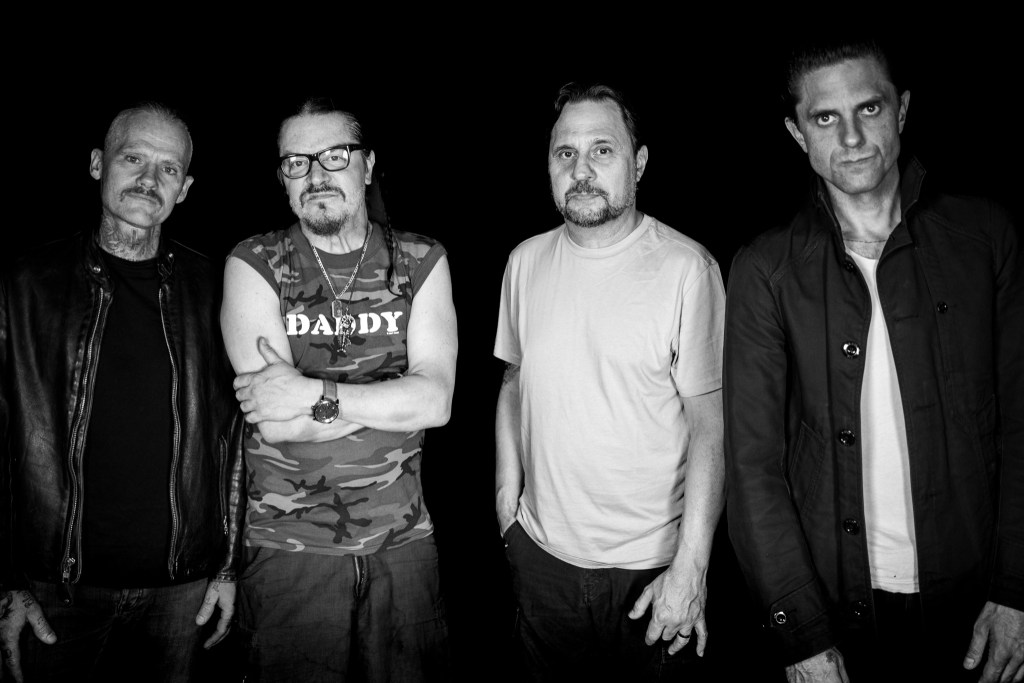
All images courtesy of Speakeasy PR/Becky DiGiglio Photography
Is Dead Cross ready to shake the “supergroup” moniker?
I must admit; I cringe at a term like “supergroup.” For one, “super” should be reserved for something that is changing the world. If we aren’t discovering a new planet, time traveling, or ending world hunger, we are just a group. What makes Dead Cross unique? Well, we are simply family. We have love, respect, and admiration for each other. But most importantly, we have empathy for each other’s imperfections. That is often not the case with other bands out there.
Give me your perspective on the lyrical concepts featured on II.
It’s hard for me to give you too much insight into someone else’s lyrics. It’s ultimately up to the listener to take what they want and what they get from a song. Like I said, it’s hard to discuss someone Patton’s lyrics. They mean something to me, and well, I know that Patton nods to our recent comrade who passed away, Chi Pig of SNFU, so we can collectively grab onto that aspect of the song.
If you had to nail down the theme of this record, what would it be?
I’m not sure that the record is thematic. I suppose the band is somewhat thematic in how we sound, or with our album artwork, or that there is some overall vibe. But I don’t know if we have a theme to present or to spell out to people. I think the album has more depth than one specific thing. And I often think of an album as some manifesto or jokingly as offspring from the players. I also think it’s too hard and would be inaccurate for me to discuss what is at the core of the band. That conversation should be had or could be had after decades or after we leave this planet. Until then, I’d prefer to refer to the comment sections online, preferably the poorly executed negative comments, about the deeper meaning of what we are.
Mike Crain told me this record saved his life. What does this record mean to you personally?
I think it did save his life. So this album means that it was a tool that he had. I’m grateful that I was a part of that tool. Mike is my musical family. I would do anything for him and anyone with whom I create art. I have no siblings, so these people are my adopted family. For everyone who has listened to it, I’d like to say thank you for paying attention.
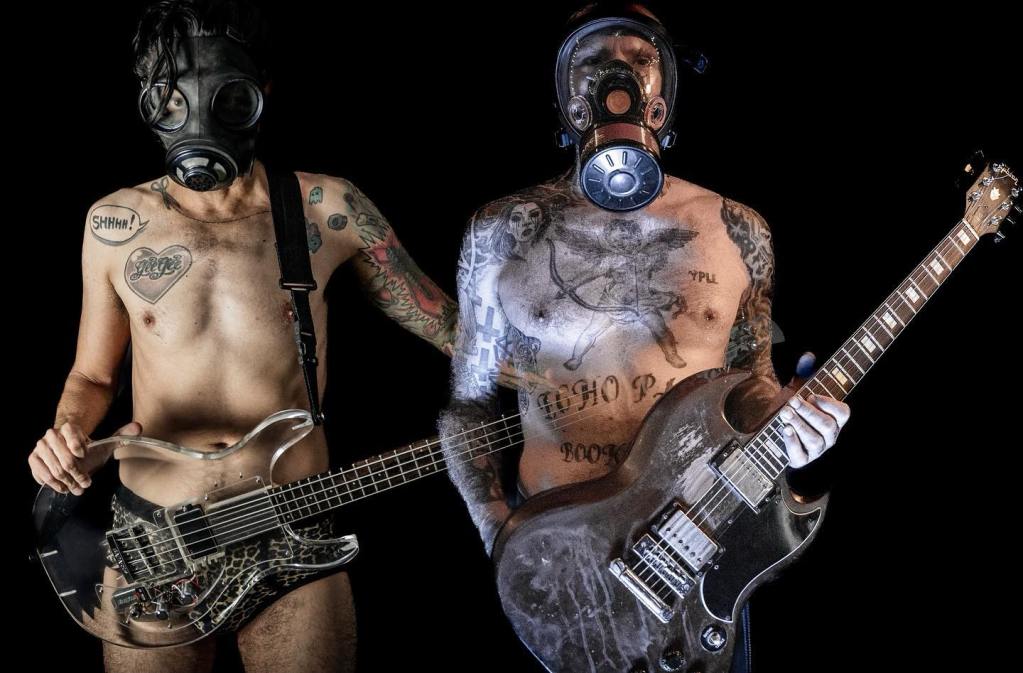
All images courtesy of Speakeasy PR/Becky DiGiglio Photography
– Andrew Daly (@vwmusicrocks) is the Editor-in-Chief for www.vwmusicrocks.com and may be reached at [email protected]
